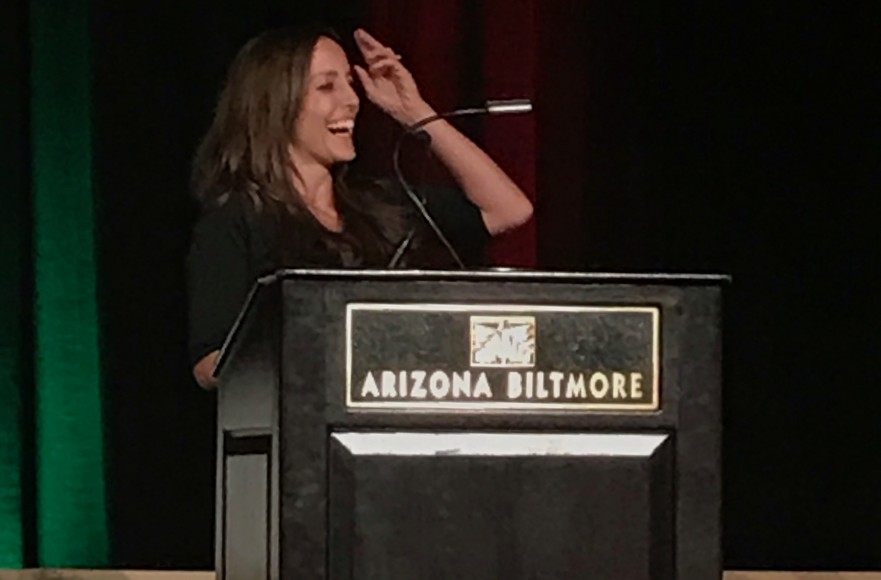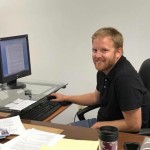This past week, I sat on the interview panel for Arizona Rural Teacher of the Year. I have worked with Teachers of the Year in the past and I know the quality of teachers they are. In fact, I nominated Ginny Sautner, NBCT, who went on to become the National Rural Teacher of the Year. I know the difference she makes in the lives of kids and at our school. As a rural teacher, that impact is magnified even more. However, sitting around a table and listening to the powerful stories of 15 teachers from rural areas who have been named County Teacher of the Year was nothing short of remarkable. There were multiple times during the day that I wept as I listened to these educators describe their love for their students, their communities, and their profession.
These teachers represent who rural teachers are and what they deal with: they ranged from young to very experienced; many were in their second careers; some came from other states and took a gamble, while others were born and raised in that community and knew all along they would teach. There were teachers who worked at incredibly small schools and filled multiple roles, and there were teachers who faced overcrowding due to dwindling budgets. A teacher from the reservation spoke about students who come over from New Mexico on a daily basis and the need to support students who only speak Navajo at home. A teacher from Nogales spoke of students who are coming over from Mexico and supporting families who only speak a language other than English. Multiple teachers talked about creating opportunities for their students to ensure they were not at a deficit compared to their suburban and urban counterparts, especially in the areas of math and science. These teachers of the year focused on getting kids access to the best technology and using it in a meaningful way. Many times, that meant partnering with a community organization and learning a skill outside their content specialty. These teachers were skilled at utilizing community resources for their kids and working with their kids to tackle community issues. More than anything, these teachers cared deeply for their students. They cared for them on a personal level. They thought about what they were learning and why they needed to learn it. They celebrated their students for the individuals they were and were fully committed to making their lives better.
I left that interview thinking if we could just fill Arizona’s schools with these teachers, my school would be the best. How do we do that? And that thought troubled me. These were 15 of the best teachers from around the state, one who will be named Arizona’s Rural Teacher of the Year in September. When we talk about our schools that struggle what we are really talking about is not finding the best teachers. We just need to fill our classrooms with teachers like these.
Well, that isn’t our reality. Especially in rural Arizona. Finding a highly qualified high school physics teacher or a special education teacher is like finding a unicorn. And I see that unicorn hunting firsthand happen every year when I recruit teachers. Right now, my school like many rural schools, has some long term substitutes, many young teachers, some teaching interns, a handful of NBCTs, and a reliable source of veterans. But, I have to step back and instead of wishing them into Teachers of the Year, I have to allow them the chance to be Teaches of the Year. For the most part, they are no different than the 15 I sat and interviewed. They have the same love and passion. They want the same good things for these students. What if we gave all teachers the opportunity to talk about what it was that made them a Teacher of the Year? What was it that they did best? How are they a leader? If I asked my staff these questions, I fully believe I would have the same tears and be moved in the same way. I realize that naming someone Teacher of the Year is meaningful, but I also realize that pulling out those attributes in all teachers is even more meaningful to the work we do every day.
On a side note, the teacher who is pictured is Ginny. I have been lucky enough to travel with her throughout the country to hear her speak and hold all of her awards while her fans seek out advice from her. She currently teaches English at Lake Havasu High School and mentors new teachers.










Comments 4
I’ve often thought that Teachers of the Year exemplify and carry the banner for many teachers who possess and demonstrate the same traits and skills. No doubt the winners are super teachers. I know many of the recent winners and don’t say for a moment that they don’t deserve recognition. I wonder how hard it would be tap into their day-to-day practice and see in concrete terms what they do that moves them into the elite, in order to inspire all of us to think of one or two things we could do a little differently to improve the most.
I’ve been thinking a lot about rural schools and their educators. I wonder how districts can start to collaborate in meaningful ways with each other in order to share important learning so that rural schools don’t continue to be left out. How can we create more more fluidity, perhaps with the use of technology, so that excellent teaching can transcend geography? We may need to radically rethink what it means to be a “full time teacher”…
Loved this post.. Yes us physics teachers are golden unicorns.. There are only 158 of us left statewide. Even less so in rural Arizona. Personally I find it an issue of equity that our students are able to gain access to higher level STEM coursework
I just met Ginny on Thursday! Wow! I am so inspired. I also want to thank you for writing this and applauding your staff. Recognition does so much to fuel us through those difficult days. You are a strong and positive leader and role model.